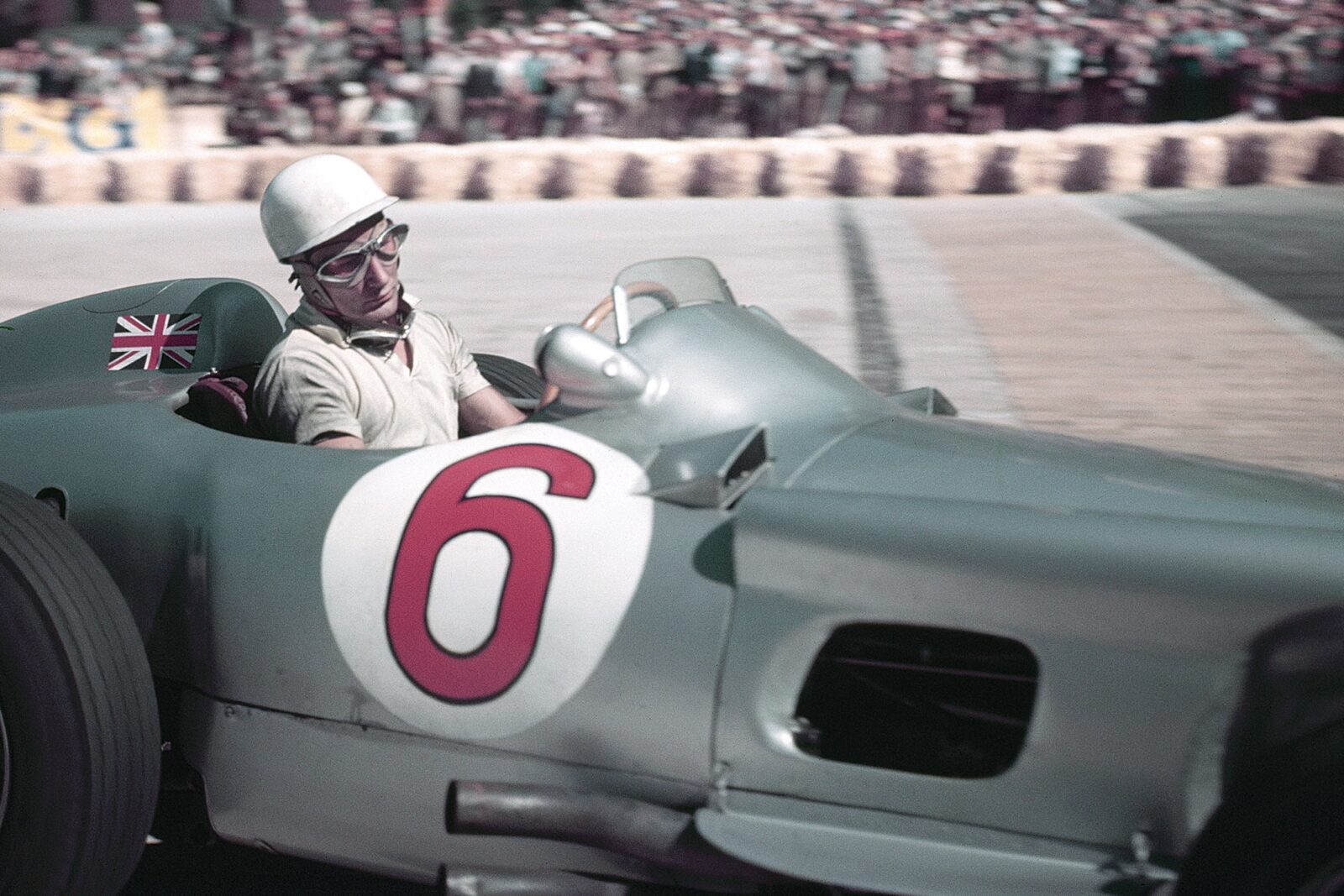Matters of Moment: Sir Stirling Moss, 1929-2020
Motor Sport pays tribute to one of Britain’s greatest drivers who holds a unique place in motor racing’s pantheon of greats

Relaxed poise: Moss during his pivotal 1955 season, driving his Mercedes W196 at Monaco
Klemantaski Collection/Getty Images
“It was one lap too many, he just closed his eyes,” said Lady Susie Moss of the moment her husband Sir Stirling slipped away early on Easter Sunday morning, April 12, at the age of 90. The most versatile, complete and surely best-known British racing driver, worn out by a long illness, had seen his last chequered flag – but is now at peace.
For those who have admired Moss all these years, it felt as though the breaking of such news should have been accompanied by some sort of thunderclap – or perhaps more fittingly a chorus of blaring racing engines. Instead, in these strange times of lockdown, there was only eerie silence broken by birdsong. At his age and in the wake of his illness, Moss’s passing was not unexpected, but at that moment there was still a sense of shock.
Moss personified all that is best about our sport. His moniker ‘Mr Motor Racing’ was the true epitaph of a man who always raced in the moment, on the limit right to the line.
“Moss grazed the heavens as a driver, but he was grounded”
Tributes from racing people, both present and past, and those from devoted fans and admirers around the world, flooded in. They inevitably drew a spotlight to the greatest victories. The Mille Miglia, a trio of Monaco Grands Prix, seven RAC Tourist Trophies, four Nürburgring 1000Kms, the Sebring 12 Hours and Targa Florio, 16 championship and countless non-championship F1 wins – and that historical quirk: the greatest driver never to win an F1 world title.
That niggling asterisk never really mattered. While F1 titles define ultimate success for modern racing drivers, it was a crown that lost its lustre for Moss after 1958 when he won four races, and still lost by a point to his friend Mike Hawthorn – who had won just once that season. What counted for more was Stirling’s not-a-second- of-doubt sportsmanship in Oporto, when he stood as a supporting witness to overturn Hawthorn’s disqualification for a minor transgression, an action that in effect cost him the title.
Before that and certainly after, all that really mattered to Moss was winning the next race. On any given day, in whatever car he happened to be driving – and he raced most of them – he was out to prove he was the best. And that he was, emphatically, especially once Juan Manuel Fangio had retired.
From 1958 until his career was cut short in 1962, Moss commanded a level of superiority over his opponents to a degree greater than probably any racing driver from any era. His rivals knew he was the benchmark, even if the results didn’t always reflect it – because he chose to drive mostly for his friend and private entrant Rob Walker, out of a mixed sense of patriotism and loyalty. It meant driving good, well-prepared F1 cars, but not always those to the latest specification, although Moss loved to be the underdog. It only made it sweeter when he beat the works entries, whether they were Coopers, Colin Chapman’s Team Lotus or “those bloody red cars” from Ferrari.
‘The Boy’, as he was known from 1947 onwards, was at the height of his powers when the final and still unexplained accident came on Easter Monday, April 23, 1962. For the next 58 years, Moss would make his living from being ‘Stirling Moss’, and from a portfolio of London properties that he’d manage personally, buzzing around the city by scooter or Smart car to deal with tenants and the mundanity of a landlord’s life.
Moss had grazed the heavens as a racing driver, but he was always soundly grounded in the real world.
Naturally engaging, brusque when his patience was being stretched, but a gentleman in the best sense of the word, he always believed in making time for grateful fans and admirers.
Appointed OBE in the 1959 New Year’s Honours list, and named BBC Sports Personality of the Year in 1961, Moss was knighted in 2000. He is survived by Susie and his children Allison and Elliot.
A full celebration of the life and career of Sir Stirling Moss starts on page 46.
